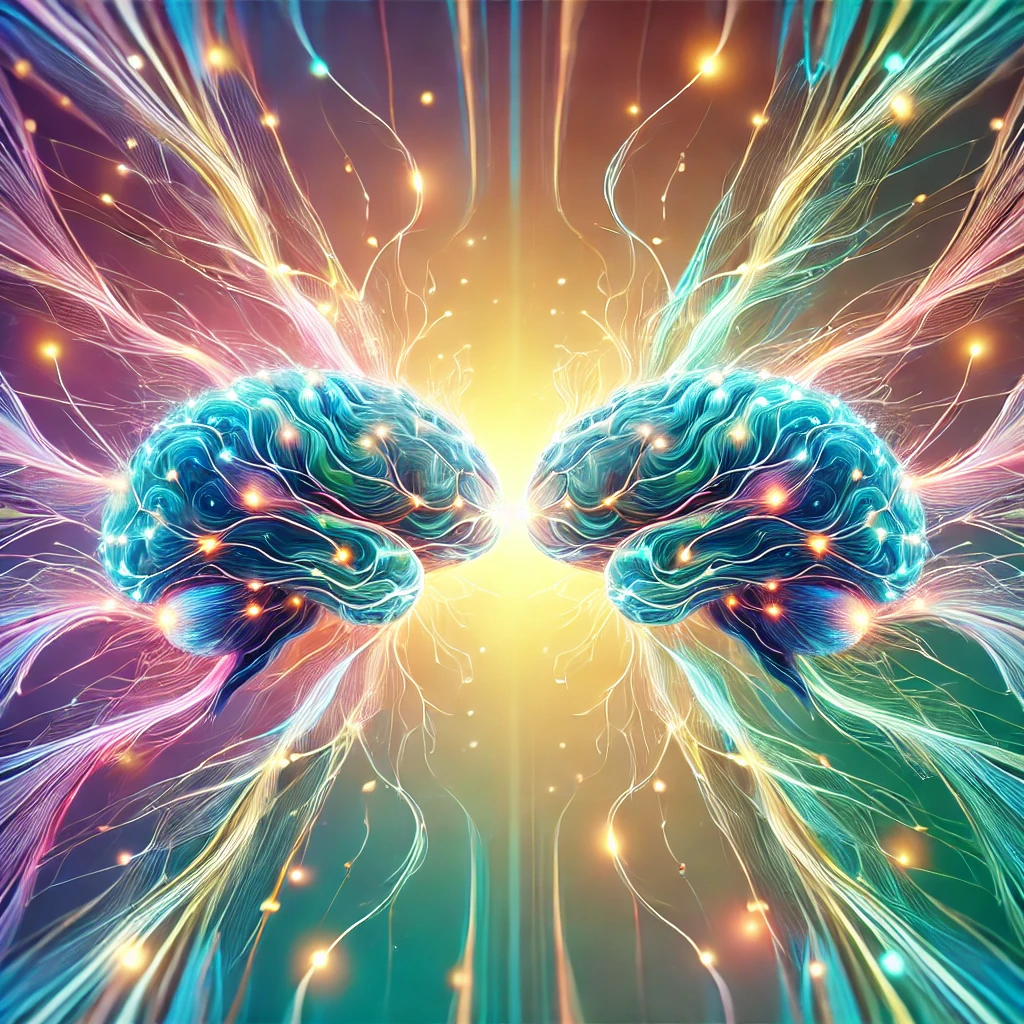Empathy and Mirror Neurons: The Science of Building Trust in Coaching
By Dr. Dan Docherty | braintrustgrowth.com
Coaching is about more than just setting goals and driving performance. At its core, it’s about connection. The ability to foster trust, understanding, and mutual respect is what separates good coaches from great ones. But why do some coaches naturally build rapport while others struggle? Neuroscience offers a compelling answer: empathy and mirror neurons. These two factors play a critical role in building trust and creating meaningful coaching relationships.
At Braintrust, we integrate these scientific principles into our coaching methodologies, enabling leaders, teams, and individuals to unlock deeper connections and achieve transformational growth.
Mirror Neurons: The Brain’s Connection Mechanism
Mirror neurons are specialized brain cells that activate both when we perform an action and when we observe someone else performing the same action. Discovered in the 1990s, these neurons are thought to be the biological basis for empathy, allowing us to “mirror” the emotions and intentions of others.
For example, when you see someone smile, your mirror neurons fire as if you were smiling yourself. This neural response helps us intuitively understand and share others’ emotional experiences. In coaching, this process fosters a sense of connection, making clients feel seen, heard, and understood.
The Role of Empathy in Coaching
Empathy is the ability to step into someone else’s shoes and view the world from their perspective. It’s not just a “soft skill” but a neurological phenomenon that directly impacts how we relate to others.
When coaches demonstrate empathy, they create a safe, nonjudgmental space where clients feel comfortable expressing themselves. This psychological safety is essential for growth. When clients sense genuine empathy, it activates their brain’s reward system, releasing oxytocin—a neurochemical associated with trust and bonding.
On the flip side, a lack of empathy can trigger the brain’s stress response, governed by the amygdala. This defensive state hinders learning, problem-solving, and open communication. That’s why cultivating empathy is crucial for effective coaching.
Building Trust Through Empathy and Mirror Neurons
Trust is the cornerstone of any successful coaching relationship, and it’s built through consistent, empathetic interactions. Neuroscience shows that when two people are deeply engaged in conversation, their brain activity begins to sync—a phenomenon known as interpersonal neural synchronization.
This synchronization strengthens the connection between coach and client, making the coaching process more collaborative and impactful. Mirror neurons amplify this effect by creating a sense of shared understanding, reinforcing trust at a biological level.
Practical Applications for Coaches
Understanding the science of empathy and mirror neurons isn’t just fascinating—it has real-world applications for coaches. Here are some strategies to harness this knowledge:
- Active Listening
When you truly listen to your clients without interrupting or judging, their mirror neurons respond to your attentiveness. This signals that you value their perspective, fostering trust and connection. - Reflecting Emotions
Reflecting your client’s emotions—verbally or nonverbally—can help them feel understood. For example, acknowledging their frustration or excitement reinforces the sense that you’re aligned with their experiences. - Mindful Nonverbal Communication
Nonverbal cues such as facial expressions, body language, and tone of voice play a significant role in activating mirror neurons. A warm smile, open posture, or calm tone can enhance the sense of trust and empathy in your coaching sessions. - Creating Psychological Safety
Foster an environment where clients feel safe sharing their thoughts and emotions. Avoid judgment or criticism, and instead, approach challenges with curiosity and support.
The Neuroscience of Transformational Growth
The power of empathy and mirror neurons extends beyond building trust. When clients feel understood and supported, their brains shift from a defensive state to a growth-oriented state. This allows the prefrontal cortex—the brain’s executive function center—to fully engage in problem-solving, goal-setting, and creativity.
This shift is where the magic of coaching happens. Clients become more open to feedback, more willing to challenge their own assumptions, and more motivated to pursue meaningful change.
How Braintrust Leverages Neuroscience in Coaching
At Braintrust, we specialize in blending cutting-edge neuroscience with proven coaching methodologies to deliver transformative results. Our approach emphasizes the importance of empathy and connection, equipping leaders and coaches with the tools they need to build stronger relationships and foster growth.
Here’s how we can help:
- Empathy Training: Learn how to cultivate and demonstrate empathy in every interaction.
- Communication Strategies: Develop brain-friendly communication techniques that build trust and engagement.
- Coaching Tools: Access neuroscience-based tools that enhance emotional intelligence and interpersonal skills.
- Customized Programs: Tailored solutions to meet the unique needs of your team or organization.
Whether you’re looking to elevate your coaching skills, improve team dynamics, or create a culture of trust within your organization, Braintrust can guide you every step of the way.
Ready to Build Trust and Drive Growth?
The science of empathy and mirror neurons underscores a simple truth: meaningful connections lead to meaningful change. At Braintrust, we help individuals and teams harness the power of neuroscience to unlock their full potential.
If you’re ready to transform your approach to coaching, visit braintrustgrowth.com today. Let’s work together to build trust, inspire growth, and achieve extraordinary results—because connection is the foundation of success.





